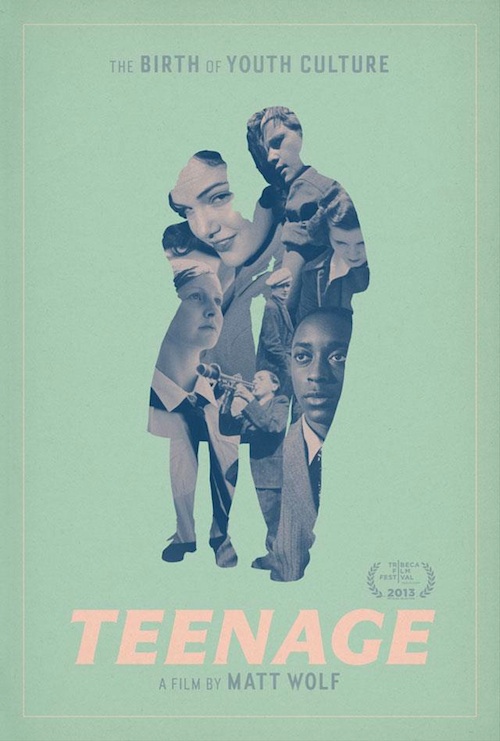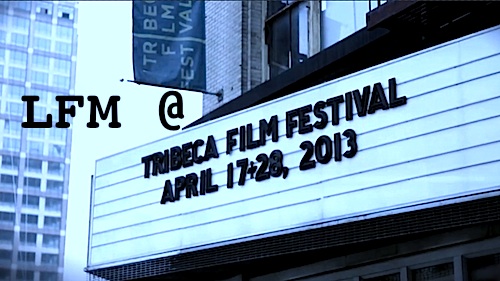 By Joe Bendel. While the styles may vary, teenagers always like their music loud. However, kids between thirteen and eighteen were not always teenagers, at least not as they are culturally and demographically defined today. Based on co-screenwriter Jon Savage’s book, Matt Wolf traces the development of the distinct intermediate age group in the docu-essay Teenage, which screens as part of the World Documentary Competition at the 2013 Tribeca Film Festival.
By Joe Bendel. While the styles may vary, teenagers always like their music loud. However, kids between thirteen and eighteen were not always teenagers, at least not as they are culturally and demographically defined today. Based on co-screenwriter Jon Savage’s book, Matt Wolf traces the development of the distinct intermediate age group in the docu-essay Teenage, which screens as part of the World Documentary Competition at the 2013 Tribeca Film Festival.
Before the Progressive Era, there were children and adults. As soon as the former were big enough to work, they became the latter. Eventually, the unsightly spectacle of young children toiling in factories led to sweeping reforms. Perhaps the biggest takeaway from Teenage is the direct cause and effect relationship between the abolition of child labor and the rise of juvenile delinquency. Maybe we owe those robber barons an apology.
Savage’s sweeping history implies early Twentieth Century teens were rather deterministic creatures who flocked out of hooliganism into the nascent scouting movement, priming themselves for service in WWI. Of course, things started to change with flappers and the Lost Generation, but maybe not so much in Germany. There, the back-to-nature youth groups could be seen as benign forerunners of the Hitler Youth organization. Still, there were dissenters in Germany, such as the Swing Kids who embraced jazz as the soundtrack of rebellion and social protest, much like American jitter-buggers.
Refreshingly, Teenage almost entirely ignores the overhyped post-war teenagers, including the Beatniks, hippies, and leather jacketed James Dean pretenders. Primarily consisting of strategically excerpted movie clips and news reels, Teenage is more about evolving images than facts and data. Periodically we hear from the diaries of four POV teens (two boys, two girls; two Brits, two Americans; one African American), but their words hold few revelations. Frankly, Teenage’s more intriguing moments are the little offhand details, such as the frolicking student film proudly bearing the name of a young Oswald Mosley.
Wolf brought a shrewd eye to bear when assembling Teenage. Unfortunately, his ear was off. Given that the film spans the mid 1900’s to 1945 (more or less), the music of choice for each era’s teens would have been jazz, but most of the film’s soundtrack has a rather generic ambient flavor. It is like Wolf did not trust the tastes of his subjects. Occasionally, we hear some archival Benny Goodman, but why “Sing Sing Sing” yet again, when “Flying Home” would be more appropriate? After all, Lionel Hampton’s pioneering stint with the nation’s most popular white swing band represents the early cultural fruits of racial integration.
 Even if it is dull listening, Teenage offers some telling visuals. While Savage’s broad strokes analysis obviously glosses over entire years and substantial pop culture developments, his overall framework is quite compelling. Recommended for audiences with a taste for cerebral documentaries (and a tin ear for music), Teenage screens again tonight (4/22), Wednesday (4/24), and Saturday (4/27) during this year’s Tribeca Film Festival.
Even if it is dull listening, Teenage offers some telling visuals. While Savage’s broad strokes analysis obviously glosses over entire years and substantial pop culture developments, his overall framework is quite compelling. Recommended for audiences with a taste for cerebral documentaries (and a tin ear for music), Teenage screens again tonight (4/22), Wednesday (4/24), and Saturday (4/27) during this year’s Tribeca Film Festival.
LFM GRADE: B-
Posted on April 22nd, 2013 at 12:49pm.